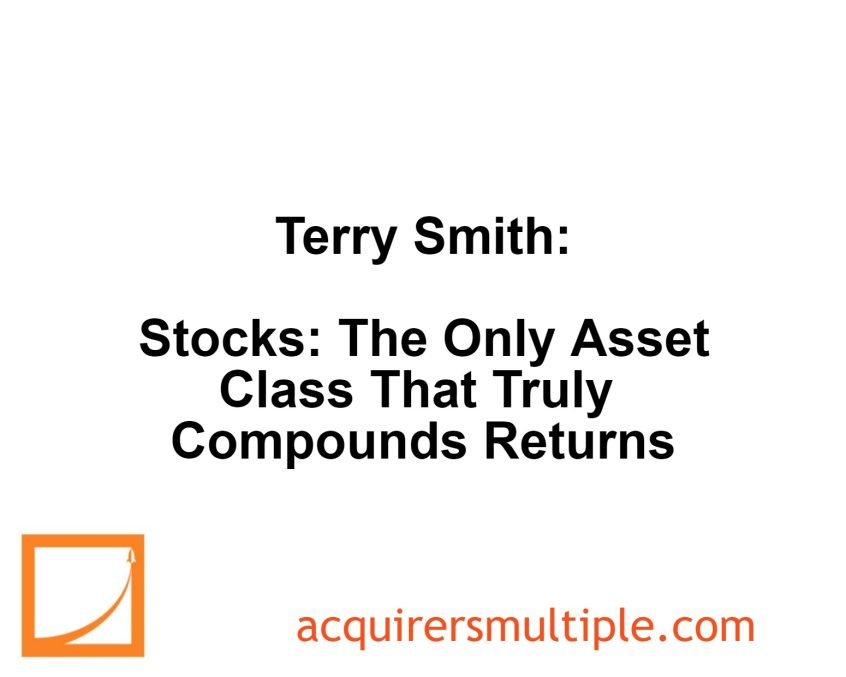In this interview with Algy’s Investment Podcast, Terry Smith discusses his investment philosophy which revolves around the power of compounding returns through investing in high-quality companies that retain and reinvest a significant portion of their profits back into the business.
He believes stocks are the only asset class that can truly compound returns over time. By owning companies with high returns on capital that reinvest earnings at those elevated rates, investors can achieve substantial long-term growth in the value of their investments.
Here’s an excerpt from the interview:
It all comes down to a thing called compound interest. That’s what we are all sort of seeking in the way with our investments is for them to compound in value over time.
Albert Einstein said compound interest is the 8th wonder of the world and how you do that well, one of the least talking about characteristics of of equities, stocks, stock market in investment is its the only asset class which can compound.
Others can’t do it. Bonds can’t do it. If you own bonds even if everything goes well, they just pay you interest and then when they get to their maturity they pay you back. They don’t reinvest any of your cash flow from the bonds.
Property is the same. If we own this building that we’re here in today you presumably, we get paid rent, and at the end of the lease we could either renew the lease or sell the building.
But none of the money we received would be reinvested in property for us. Whereas in equities some, round about half approximately of company’s profits are retained and reinvested in the business.
And if they do that tolerably well it compounds in value and in particular, and this comes back to my strategy that you’re asking about.
If they do it really well then they can grow your value of your investment far faster than you can grow it by finding new investments in the stock market. If the average company that you’re investing in has a 30% return on capital, and ours do.
And if they retain about half their earnings and invest it again at 30%, then presumably they’ll compound about, take a rule of thumb 15% per annum, which strangely enough is round about what we’ve compounded at, and that’s it.
You can watch the entire interview here:
For all the latest news and podcasts, join our free newsletter here.
Don’t forget to check out our FREE Large Cap 1000 – Stock Screener, here at The Acquirer’s Multiple:



